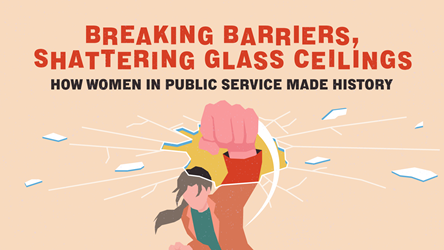When Meaning Yields Sense & Cents

In the last few years, most have experienced a decade worth of change. We have categorised these changes into a STEPED model – for Social, Technological, Economic, Political, Environmental, and Demographic changes.
To cope with these STEPED changes, leaders in public and private organisations need to become meaning-makers who help employees replace deficit with abundant thinking. Deficit thinking focuses on what is wrong and unfeasible; abundant thinking focuses on what is right and possible.
For example, the British National Health Service has found that when employees have a strong sense of purpose, patients experience better health care. At a personal level, my father was a government employee. He found meaning in his work to protect the forest (he started as a forest ranger), then he found other meaning when he shifted to social agencies. He helped direct government funding to enable the economically disadvantaged to find work. He taught by example that when public officials sense a higher purpose in their work, they are more committed to doing it well.
My sister is a principal in a middle school. She finds that teachers who are committed to helping students learn (versus simply putting in their time for a paycheck) not only have better learning outcomes, but also have a more positive outlook on life in general.

To create meaning at work, we have culled various disciplines and literatures and identified seven questions that leaders may address to produce more abundant outcomes:
1. Who am I?
Abundance includes clarity about identity and signature strengths and ensures that employees will build on their strengths that strengthen others. A building inspector sees his job as ensuring the elegance of architecture and quality of lifestyle in the com- munity he works.
2. Where am I going?
Abundance emerges from a clear sense of what we are trying to accomplish and why. A passport control officer who views his work as welcoming tourists into and citizens back into the country, finds more meaning in the work than merely checking passports and visas.
3. Whom do I travel with?
Abundance is enhanced by meaningful relationships. One of the highest team unity scores we have ever seen was from a revenue collection agency where employees relied on each other for emotional and social support.
4. How do I build a positive work environment?
Abundance thrives on positive routines that help ground us in what matters most and help us connect with ourselves and others. A leader of a social service agency began every staff meeting with stories about those they served to personalise their work, and to remind staff of the service they rendered.
5. What challenges interest me?
Abundance occurs when companies can engage not only employees’ skills and loyalty, but also their values. The most engaged employees are generally those whose work gives them the opportunity to stretch while doing
6. How do I change, learn, and grow?
Abundance acknowledges that failure can be a powerful impetus to growth and learning. A colleague who does research on the public sector is constantly seeking ways to improve efficiency and service. That’s how she finds meaning in her work.
7. What delights me?
Abundance thrives on simple pleasures, such as laughing at ourselves, appreciating excellence, and having fun at work. These sources of delight are highly personal. One public servant wrote letters of appreciation to employees’ families on their birthdays as a way to acknowledge their good work.
When leaders help employees explore these seven questions, they help create abundant organisations with positive individual and organisation results:
- higher commitment, better employee health, improved productivity and retention
- a leadership brand that builds investor confidence
- increased customer commitment (because customer attitudes about an organisation correlate with the attitudes of its employees)
- increased investor confidence in future earnings and higher market value (based on intangible assets like leadership and quality of employees)
- improved community reputation, merited by stronger social responsibility.
Making meaning makes both sense and cents.
Dave Ulrich is co-author of No. 1 bestseller “The Why of Work”, a professor at the Ross School of Business, and a partner in the RBL Group (www.rbl.net).
- POSTED ON
Sep 8, 2010
- TEXT BY
Dave Ulrich









